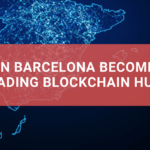In the summer of 2013, a design-oriented, multinational brand manager and ESADE MBA student named Louis Powell took a hard look at Barcelona’s tech and startup ecosystem during an internship with itnig. Over the next few weeks, Barcinno will publish his findings and opinions to encourage discussion and a reflection of our community as we head into the new year. Thank you to Louis and itnig for this contribution. 
Barcelona’s Ed-Tech Revolution
Most education taught in today’s schools was formed in classical times and cemented in the 19th century. I do not mean the content, which has evolved over time, although Latin is still a constant in some institutions. What I mean is the structure, process and methodology. Teachers, lecturing pupils who in turn learn by rote, have been using the same practices for hundreds of years. It is only recently that education innovators have started to take the bit by the teeth. The internet has made content available outside of the classroom and expensive text books. Research into the psychology of learning has taught us more effective methods of learning and tools/initiatives like ‘One Laptop per Child‘ and the availability of hardware have created new opportunities to improve education.
Barcelona has been quick on the uptake with both private and public organisations innovating in the education sector. We spoke to two entrepreneurs in this educations space to understand their motivations and what its like to operate in the vital, but notoriously cautious education market.
Tiching, is a Barcelona based startup platform for child education material. Rather than develop their own content their platform allows educational specialists and teachers to share educational content, lesson plans, images, games etc. With over 150,000 members Tiching aims to be the biggest education content platforms. From Spain they have moved to Latin America where they are achieving impressive growth rates, with families and governments alike desperate to improve child education.
Tomás Casals, cofounder and CEO of Tiching, believes the industry is changing and that Barcelona is becoming a hub for Ed-Tech companies. ‘Barcelona’ he says ‘has produced a cluster of companies in the educational technology sector. We share experiences, sometimes go out together to attend presentations or congresses… sometime they [other tech-ed companies] face the same problems as us, and it is interesting to see how they solve them.’ This collective support helps startups survive what is a difficult and slow moving market. They are also government backed initiatives like Escuela 2.0 who help businesses, such as Tiching, contact schools and add official public weight which is vital for persuading teaching staff and public officials, that change, is a good things.
 Unlike Tiching, Funbox is focusing more on content. Córsica Ramírez, co-founder of Funbox, uses her experience and passion for video games to help create engaging and informative education apps for children. She realised education needs to change. ‘Kids are losing interest in school’ she says ‘teachers are no longer the only source of education and the workforce requires different types of skills. People need to be doers and be self-motivated so schools have to adapt.’ The spread of computer coding in schools, through initiatives like Code Club in the UK, suggests educators are listening. This implies programming is just the start, new subjects should be taught to fit the ‘real world’, entrepreneurship and, sustainability for example.
Unlike Tiching, Funbox is focusing more on content. Córsica Ramírez, co-founder of Funbox, uses her experience and passion for video games to help create engaging and informative education apps for children. She realised education needs to change. ‘Kids are losing interest in school’ she says ‘teachers are no longer the only source of education and the workforce requires different types of skills. People need to be doers and be self-motivated so schools have to adapt.’ The spread of computer coding in schools, through initiatives like Code Club in the UK, suggests educators are listening. This implies programming is just the start, new subjects should be taught to fit the ‘real world’, entrepreneurship and, sustainability for example.
Funbox have just launched a Beta of their new music app called Music Box which is also released through the one laptop per child program ensuring those in most need have access to new ways of learning. Currently part of the Seedcamp program in Barcelona, Funbox is not just focused on Spain but is also looking to Latin America to kick start growth.
These two startups provide some evidence of the Ed-tech activities of Barcelona. However there are plenty of other businesses in the city looking to shake up the industry. Examples include Nice Tales, which encourages parents to read to children by allowing them to record themselves telling a favourite story, Robot Media, which allows anyone to create an animated story on their computer or tablet, Infantium, which is creating adaptive learning technology to personalize the education of each individual child, and Tutotoons, which is enabling parents and teachers alike to create their own educational video games without the need for programming. Co-founder of Tutotoons, Damien Bruneau also heads up the local Barcelona EdTech Meetup group. If successful businesses, like these, create sustainable models they will disrupt and revolutionise one of the fundamental aspects of being human; the ability to learn.







Leave a Reply